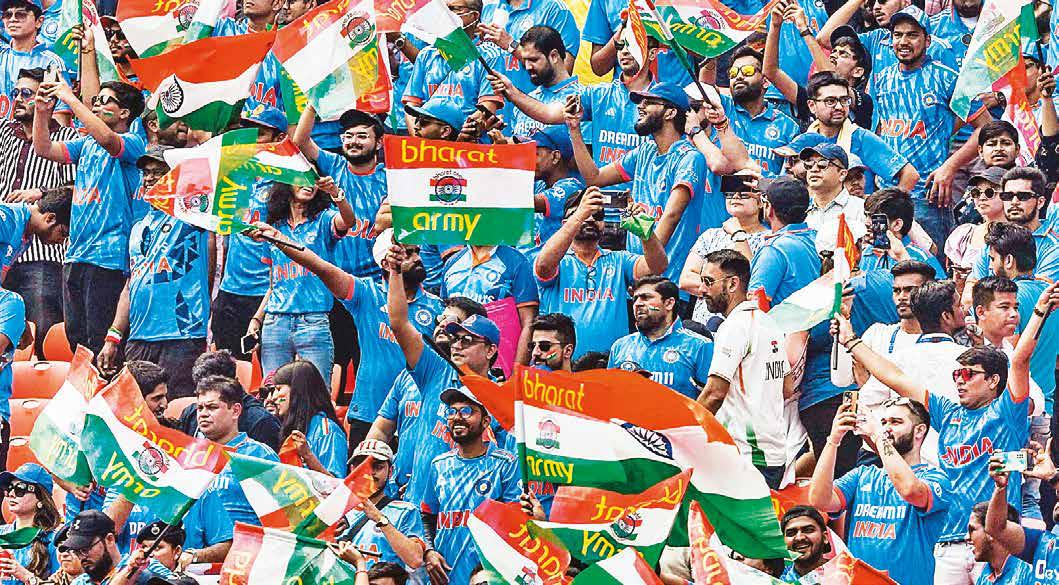
ARE names of all countries proper nouns that should be the same in all languages? This is certainly not true for all countries. Germany is known as Deutschland by all German language speakers. It is also called Allemagne in French, Alemania in Spanish and Arabic, Tyskland in Danish and Saska in Finnish. It probably has a dozen names in a dozen languages. Hungary is known as Magyarország by Hungarians, Ungarn by Germans and Magyarestan by Persian speakers. The country we know as China in English, Cheen in Hindi, Kitay in Russian, is called Zhōngguó by the Chinese people. The country we know as Japan is called Nippon by the Japanese. The list of such countries is long.
Yet, the people or governments of none of these ancient countries have complained that their names in other languages are an imposition or are a sign of colonisation. If you look at a German government document or website in the English language, the country is called Germany, just as Bharat is called India in any English language document. The point I am trying to make is that having different names in different languages is not limited to India, and this is neither a sign of colonisation nor something to be bemoaned.
Why are some Indians being small-minded about this? Names of countries with ancient civilisations have become parts of various languages over the millennia. They are not subject to limitations as ordinary proper nouns. India belongs to this select group of countries with a long history. We are called Bharat in Hindi and many Indian languages, Hindustan in Urdu and Persian, Alhind in Arabic, Inde in French, Indien in German, Yindu in Chinese, and India in English. This should be considered a privilege, one not available to newer country names like Pakistan or Bangladesh, which do not have a lot of history behind them.
This story is from the {{IssueName}} edition of {{MagazineName}}.
Start your 7-day Magzter GOLD free trial to access thousands of curated premium stories, and 9,000+ magazines and newspapers.
Already a subscriber ? Sign In
This story is from the {{IssueName}} edition of {{MagazineName}}.
Start your 7-day Magzter GOLD free trial to access thousands of curated premium stories, and 9,000+ magazines and newspapers.
Already a subscriber? Sign In

Layers Of Lear
Director Rajat Kapoor and actor Vinay Pathak's ode to Shakespeare is an experience to behold

Loss and Longing
Memories can be painful, but they also make life more meaningful

Suprabhatham Sub Judice
M.S. Subbulakshmi decided the fate of her memorials a long time ago

Fortress of Desire
A performance titled 'A Streetcart Named Desire', featuring Indian and international artists and performers, explored different desires through an unusual act on a full moon night at the Gwalior Fort

Of Hope and Hopelessness
The body appears as light in Payal Kapadia's film

Ruptured Lives
A visit to Bangladesh in 2010 shaped the author's novel, a sensitively sketched tale of migrants' struggles

The Big Book
The Big Book of Odia Literature is a groundbreaking work that provides readers with a comprehensive introduction to the rich and varied literary traditions of Odisha

How to Refuse the Generous Thief
The poet uses all the available arsenal in English to write the most anti-colonial poetry

The Freedom Compartment
#traindiaries is a photo journal shot in the ladies coaches of Mumbai locals. It explores how women engage and familiarise themselves with spaces by building relationships with complete strangers

Love, Up in the Clouds
Manikbabur Megh is an unusual love story about a man falling for a cloud. Amborish Roychoudhury discusses the process of Manikbabu's creation with actor Chandan Sen and director Abhinandan Banerjee